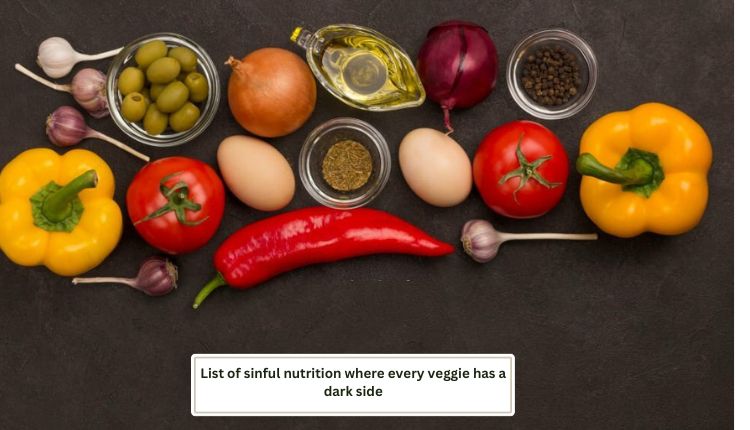Table of Contents
Explore the Reasons Behind Why You’re Craving Beans and Their Nutritional Significance in this In-Depth Article.
Cravings are your body’s way of communicating its needs. Have you ever wondered why you suddenly crave beans? Well, there are various reasons, and they all signal something unique about your body’s requirements. In this article, we’ll explore the many facets of bean cravings and what they reveal about your health.
1. Caloric Deficiency
The human body relies on calories to function efficiently. A mere tablespoon of beans contains 42 calories, making it a valuable source of energy. While it may not meet your daily calorie quota on its own, incorporating more beans into your diet can help bridge the gap. However, remember that excessive consumption of calorie-rich bean dishes can derail your diet plan, as the additional calories can go unnoticed.
2. Dieting Dilemma
Dieting often leads to cravings, especially when it involves calorie restriction. Many diets create a calorie deficit, leaving your body wanting more nutrients. Beans, being nutritionally dense, are a common craving in such circumstances. Rather than relying on restrictive diets, consider meeting your calorie needs according to your Body Mass Index (BMI) to reduce these cravings.
3. Protein Requirement
Proteins are the building blocks of your body, vital for muscle growth and overall function. If you have a sedentary lifestyle, you may not be getting enough protein. A single tablespoon of beans contains 2.6 grams of protein. Consuming a bowl of beans can significantly boost your protein intake and alleviate cravings. Ensuring an adequate protein intake can help curb these urges.
4. Carbohydrate Cravings
Carbs often get a bad rap in diets, but they are essential for providing your body with energy. When your body requires a quick energy source, it breaks down stored carbs. If you find yourself low on energy or experiencing sugar cravings, it might be due to insufficient stored carbs. Beans can help here, as a tablespoon contains eight grams of carbohydrates.
5. Hormonal Fluctuations
Hormonal changes, whether due to age, medication, or lifestyle, can affect your body’s nutrient absorption. This can lead to cravings. For instance, women often crave beans during menstruation because they need extra carbs for the process. Beans, rich in carbs, can help fulfill these nutritional needs and alleviate cravings.
6. Pregnancy Cravings
Pregnancy places higher nutritional demands on your body, especially for nutrients like iron. Beans are an excellent source of iron, and cravings for beans during pregnancy could be a sign of an iron deficiency. This craving may not only come from you but from your developing baby, which requires sufficient iron for healthy growth.

7. Enjoyable Texture
The texture of certain beans can be exceptionally pleasing to some individuals. The brain associates this texture with pleasure, making you crave beans for that specific mouthfeel. During tough times or when seeking comfort, your brain may desire this texture, leading to cravings. Click to read about 73147 Education.
8. Personal Preference
Sometimes, you crave beans simply because you enjoy their flavor and texture. Your brain remembers the pleasure associated with eating beans and prompts you to crave them occasionally. Satisfying this craving by indulging in beans or similar foods can make it go away.
9. Stress Management
Stress often triggers cravings as a means of seeking comfort. If you associate beans with positive experiences, your brain may drive you to eat them during stressful periods. Being mindful of your cravings can help you identify and manage stress effectively.

10. Phosphorus Deficiency
A less common but crucial reason for craving beans is a phosphorus deficiency. Phosphorus is essential for healthy bones, and its deficiency can lead to muscle weakness, confusion, and other symptoms. Beans contain phosphorus, making your body crave them to address the deficiency. Once your phosphorus levels normalize, these cravings should subside.
Exploring Bean Varieties
Understanding the types of beans can provide insight into your specific nutrient deficiencies. Different beans offer various health benefits, and your cravings may indicate what your body needs.
1. Black Beans
Black beans are low in sugar and rich in magnesium, folate, vitamin A, calcium, and iron. They are beneficial for muscle support, energy production, and immune system support.
2. Black-Eyed Peas
These beans are a good source of folate, calcium, zinc, copper, manganese, and vitamin A, making them ideal for pregnant women and bone health.
3. Cannellini Beans
Fat-free and supportive of healthy cholesterol levels, cannellini beans are rich in iron, magnesium, and folate.
4. Garbanzo Beans
Known for their high fiber and protein content, garbanzo beans also contain potassium, iron, and a range of B vitamins for metabolism and brain health.
5. Kidney Beans
Kidney beans provide omega-3 fatty acids, antioxidants, iron, folate, manganese, and phosphorus, offering cardiovascular support and protection against oxidative stress.
6. Pinto Beans
Pinto beans are low in fat and sodium, making them an ideal choice for those watching their cholesterol and sodium intake. They also contain thiamine, iron, potassium, manganese, and phosphorus.
7. Soybeans
Soybeans are rich in vitamins C and K, protein, and are valuable for immune support and blood clotting.
Final Words
Your cravings for beans can reveal a lot about your body’s nutritional needs and overall health. By understanding the underlying reasons for your cravings, you can make informed dietary choices to address these needs effectively. Consider incorporating a variety of beans into your diet to ensure you’re meeting your body’s demands for essential nutrients.
People also ask about Why You’re Craving Beans
Why does your body need beans?
Beans are rich in essential nutrients like protein, carbohydrates, and iron, making them a valuable source of energy and supporting various bodily functions.
Why do I feel happy after eating beans?
Certain beans’ textures can trigger pleasure sensations in the brain, leading to a feeling of happiness or comfort.
Does your body get used to eating beans?
While your body may develop preferences, it doesn’t necessarily get “used to” beans. Cravings can be influenced by nutrient deficiencies, stress, or personal preferences.
What do cravings mean your body needs?
Cravings often signal a need for specific nutrients, stress relief, or simply personal enjoyment, offering insight into your body’s requirements and emotional states.


